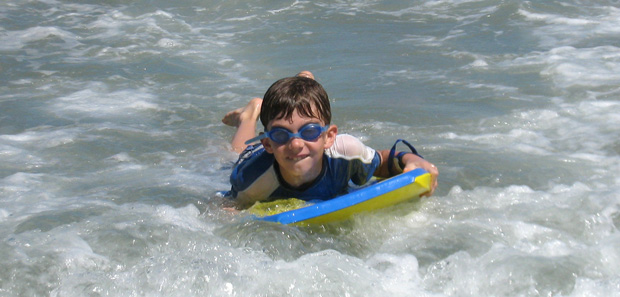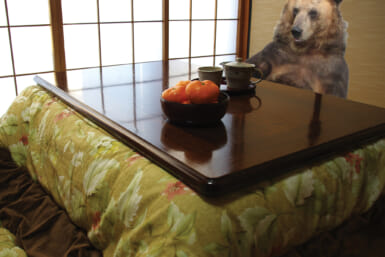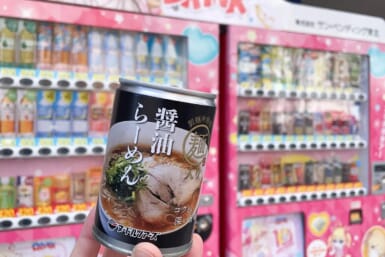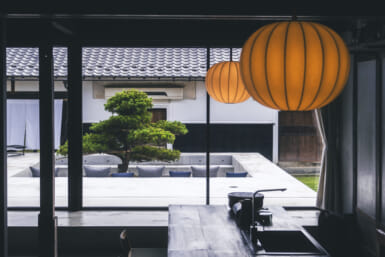by Aimee Weinstein
Photo courtesy of Wendela Elsen
It’s summer and everyone is celebrating! Well, most people are celebrating, but for parents of kids in international schools in Tokyo, summer can be a long and perhaps even stressful experience. But the holidays can also be a time for joy and relaxation—it just takes a little planning and knowing the best way to take care of the different needs of different children.
Long-term Tokyo resident, architect and architectural writer Naomi Pollock, has two daughters, Abby and Eve, ages 15 and 13. Both attend Nishimachi International School now, but will begin at the American School (ASIJ) in September. Their summer solution is camp in the US. “Sleepaway camp is one of America’s best inventions,” Pollock declares. “The girls are immersed in their culture; they understand what American kids are reading, listening to, wearing, and [what] words they use.” The first summer the girls went to camp, Abby was ten and Eve was eight. They went for two weeks
that first summer, but now Eve will go for eight weeks and Abby will attend a different voice camp for six weeks. The girls will see their extended family both before and after camp. Both Abby and Eve were born in Tokyo and when they were young, Pollock would bring them to their grandparents’ house and sometimes send them to day camps nearby. “The older they get, the more opportunities they have,” Pollock explains. “They’ve done science camps, reading camps, and everything in between.” Pollock uses the summer break to enrich the girls’ school-year lives.
 Photo courtesy of Naomi Pollock
Photo courtesy of Naomi Pollock
Wendela Elsen, a Dutch human resource consultant, has children who are younger than Pollock’s, who also have different interests. Her three children are Rogier, ten, and twins Anna-Claire and Mimi, who are eight. With all three kids at ASIJ, she finds the summer to be quite long. The kids attend the three-week summer camp that takes place right at their school. “Then I let them decompress for a bit,” Elsen says. “It’s good for them to relax and take some time to do nothing.” She feels that it’s important to let the kids entertain themselves a bit and even get a little bored. She will take them to Holland for two weeks and then come back to Japan to spend two weeks in Shimoda at the end of the summer. When the kids were littler, they went to Holland for longer, but Elsen’s mother has since passed away and her work keeps her in Tokyo longer. “The kids are great travelers,” Elsen says. “They now entertain themselves beautifully, too.”
Holly Schwartz is on the other end of the spectrum with her children, Skylar, age four, and Blayden, age two. Skylar attends Willowbrook International School in Tokyo. Schwartz doesn’t like the mass exodus that occurs in June; she feels that it makes living here feel disjointed. During the family’s previous expat experiences in Europe, this didn’t happen. The Schwartzes will travel around the US quite a bit this summer, spending one full month at Holly’s parents’ house in Florida.
With both children having been born overseas, she, like Pollock, feels the need to expose the kids to American culture. Though Schwartz will be in the US for quite a long time, her husband will only be there for about two weeks of it. “Being without him is tough on me and on the kids,” Schwartz acknowledges, “but we do what we have to in order to get through the long summer.” She is making her kids into great travelers by making flights exciting with small presents like funky band-aids or new crayons. Right now, that is what works for her young children.
Masami Agarie and her family come from quite a different perspective than most other parents who send their children to international schools. As a Japanese national, she uses the summer to keep her children comfortable in Japanese society. “It’s important for the girls to have local friends,” Agarie explains, speaking of her daughters, Michiru, ten, and Izumi, five, who attend the Montessori School of Tokyo (MST). “They have to learn to live as Japanese people, so the summer can be useful.” This summer both girls will go to a ballet school, and Michiru to a juku (cram school) for some science classes and shakaika—Japanese studies—where she will learn about Japanese government, history and geography, something she does not get at MST. Agarie, whose family has owned the restaurant Fukuzushi for generations, loves the long, relaxing mornings with her daughters. “I have to work during lunch and dinner,” Agarie explains, “and during the school year the girls go off so early. I get to spend the time with them in the summer.” Though she feels that the break is probably too long, she knows that the girls will both be happy to go back to school when it opens in late August. Summer is long for kids at international schools in Tokyo, but with some creative planning and managing on the part of the parents, it can be a great experience for everyone, no matter what the ages.
Special thanks to Ann McHugh for interviews and information.
Parenting Tips:
Easy Summer Travel
1. Don’t sweat the jet lag. It takes five days to adjust no matter what you do; just allow for it.
2. Especially with young kids, whatever you give one, you have to give the other. Snacks for one child, snacks for the other; gifts for one, gifts for the other.
3. Packing something new and exciting in kids’ flight bags makes for exciting times and easier travel.
4. Keep plenty of snacks and water on hand during long flights.
5. Planning to entertain kids also helps them learn to entertain themselves.









